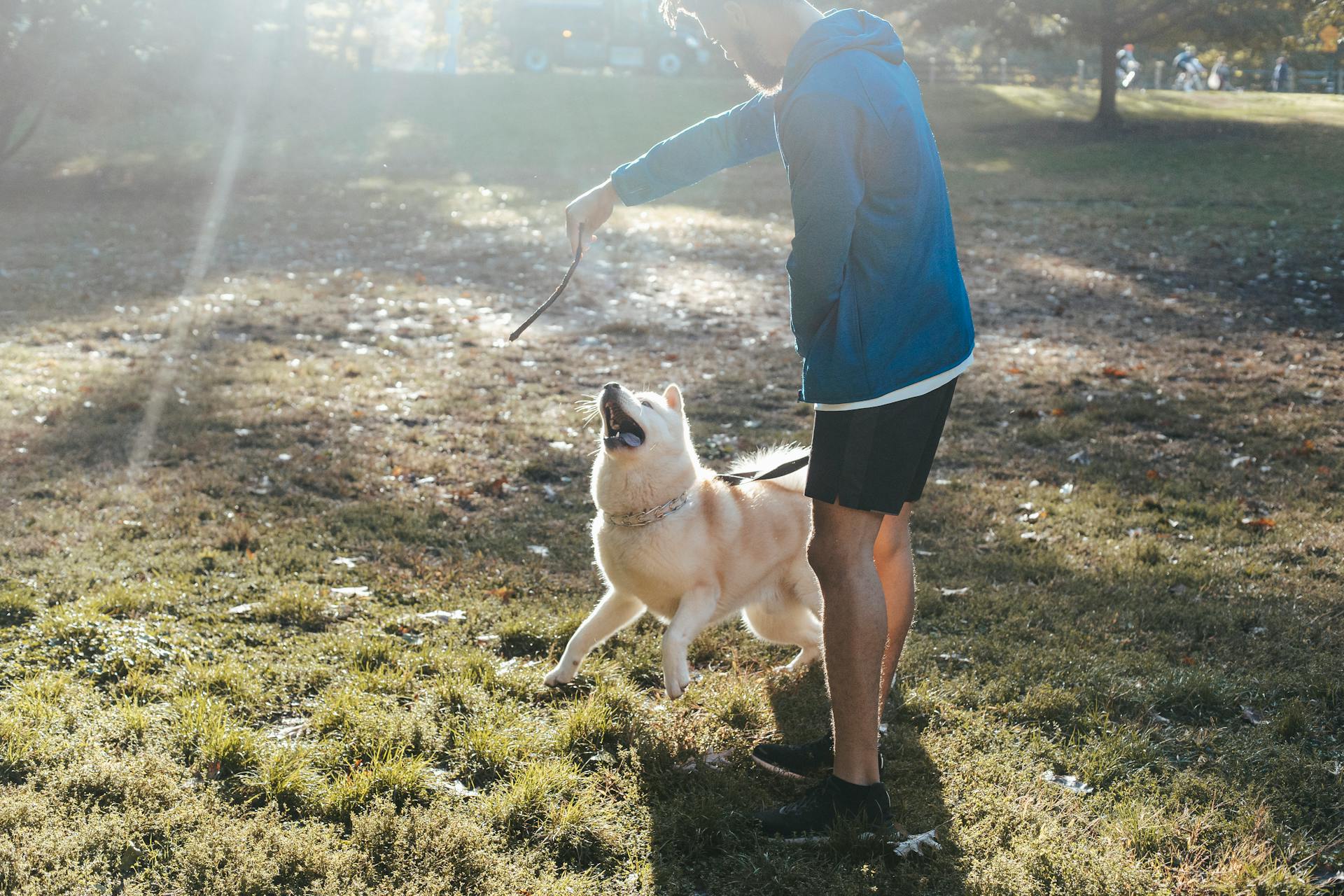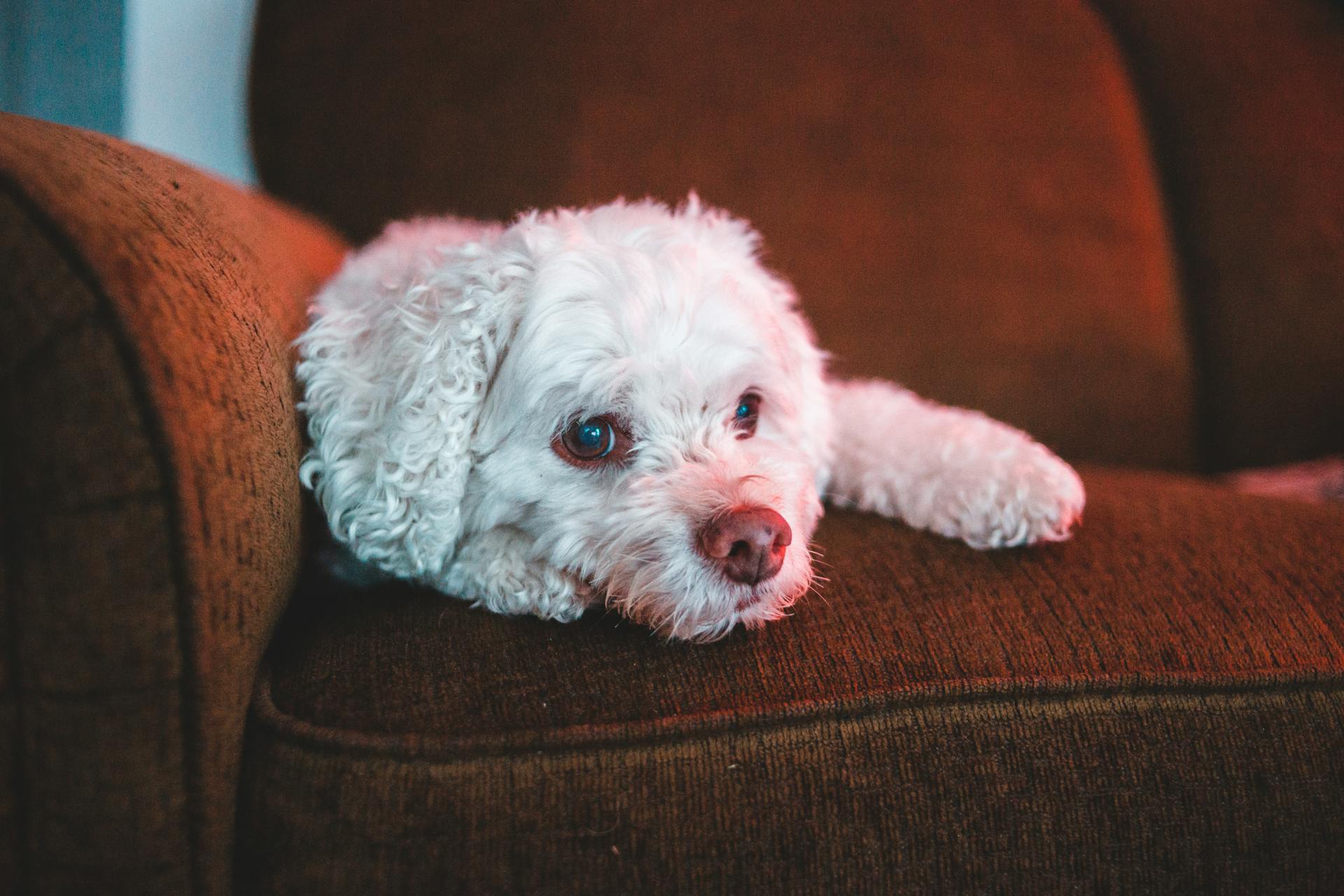
Miniature Schnauzers are indeed a delight to train, and it's all thanks to their intelligent and loyal nature. They thrive on structure and clear communication, making them highly responsive to positive reinforcement techniques.
Their high energy levels and strong prey drive can sometimes make them stubborn, but with consistent training and plenty of exercise, they can learn to focus and obey commands.
Miniature Schnauzers are known to be quick learners, often picking up new commands and tricks in a matter of weeks. With patience and persistence, you can teach them to walk on a leash, perform agility tasks, and even learn basic obedience commands.
Their strong desire to please their owners makes them highly motivated to learn and please, which can make training a fun and rewarding experience for both you and your Miniature Schnauzer.
Schnauzer Temperament and Training
Miniature Schnauzers are known for their boundless energy and flair for mischief, making them a fun-loving breed that's always up for an adventure. They thrive on attention and need plenty of interaction to stay happy and healthy.
As an out-and-out extrovert, Miniature Schnauzers need early socialisation to warm up to other dogs, so it's essential to introduce them to new furry friends from an early age.
Their intelligence and trainability make them a great breed for families with children, but it's crucial to remember that they have a high prey drive and aren't suitable for households with cats or smaller mammals and birds.
Miniature Schnauzers are highly intelligent and usually easy to train, but their stubborn streak requires a firm and patient hand. They love to learn tricks and will relish the attention from you, but they can also be strong-willed and have "selective hearing" when it comes to obeying commands.
Here are some key characteristics of Miniature Schnauzers that are essential to consider when deciding if they're the right breed for you:
Overall, Miniature Schnauzers are a loyal and loving breed that thrive on attention and interaction. With their high intelligence and trainability, they make a great addition to active families who are willing to provide the necessary exercise and mental stimulation.
Schnauzer Breed Overview
Miniature Schnauzers are a charming and spirited breed that originated in Germany. They were originally bred by crossing small Standard Schnauzers with Affenpinschers and Miniature Pinschers.
Miniature Schnauzers have a unique and iconic appearance, with their distinctive bushy eyebrows, beard, and wiry double coat. They typically stand at around 30 to 36 cm in height and weigh between 5 to 9 kg.
These little bundles of energy have an average life expectancy of 12 to 15 years. Miniature Schnauzers are natural-born diggers, so they'll love finding buried treasure in a sandbox or on the beach.
Miniature Schnauzers are known for their intelligence and trainability, making them relatively easy to train. With a consistent and positive training approach, they can excel in obedience training and various dog sports.
Here are some key characteristics to keep in mind when training your Miniature Schnauzer:
Miniature Schnauzers are happiest in busy, active households and need plenty of exercise and mental stimulation to prevent boredom and destructive behavior. With patience, consistency, and a gentle approach, they can become well-behaved and obedient companions.
Training
Miniature Schnauzers are highly intelligent dogs that thrive on learning and training. Due to their high intelligence, they love to learn tricks and will relish the attention from you. They're naturally curious and will pick up commands quickly, but their stubborn side makes them best suited to more experienced dog handlers.
To train a Miniature Schnauzer effectively, it's essential to establish yourself as the pack leader. This means being consistent, patient, and positive in your approach. With early recall training, you can help your Miniature Schnauzer develop good listening skills and avoid "selective hearing" when it comes to obeying commands.
Miniature Schnauzers are strong-willed and can lose interest quickly in lessons if they're not engaged. To keep them motivated, mix up your training sessions with fun activities like agility training and obedience exercises. These versatile dogs excel in various dog sports, including Earthdog trials, which showcase their underground hunting skills.
Here are some key training tips to keep in mind:
- Introduce recall training early on to help your Miniature Schnauzer develop good listening skills.
- Mix up your training sessions with fun activities to keep them engaged and motivated.
- Establish yourself as the pack leader through consistent, patient, and positive training.
Schnauzers: Good and Bad
Miniature Schnauzers are known for their loyal and protective nature, but this can sometimes make them wary of strangers and new environments.
Their intelligence and trainability are major advantages, as they can learn quickly with positive reinforcement.
However, their independent streak can lead to stubbornness and a tendency to resist training.
Their high energy levels require regular exercise and mental stimulation to prevent boredom and destructive behavior.
Despite their small size, Miniature Schnauzers are naturally alert and watchful, making them excellent watchdogs.
Their strong will can sometimes make them difficult to manage for inexperienced owners.
But with patience, consistency, and positive reinforcement, even the most stubborn Miniature Schnauzer can learn to obey and behave well.
Sources
- https://www.petplan.co.uk/pet-information/dog/breed/miniature-schnauzer/
- https://www.yourpurebredpuppy.com/reviews/miniatureschnauzers.html
- https://www.borrowmydoggy.com/doggypedia/dog-breed-guides-miniature-schnauzer
- https://www.lordsandlabradors.co.uk/blogs/journal/everything-you-need-for-your-new-miniature-schnauzer-puppy
- https://www.11pets.com/en/news/the-miniature-schnauzer-as-seen-by-a-dog-trainer
Featured Images: pexels.com


